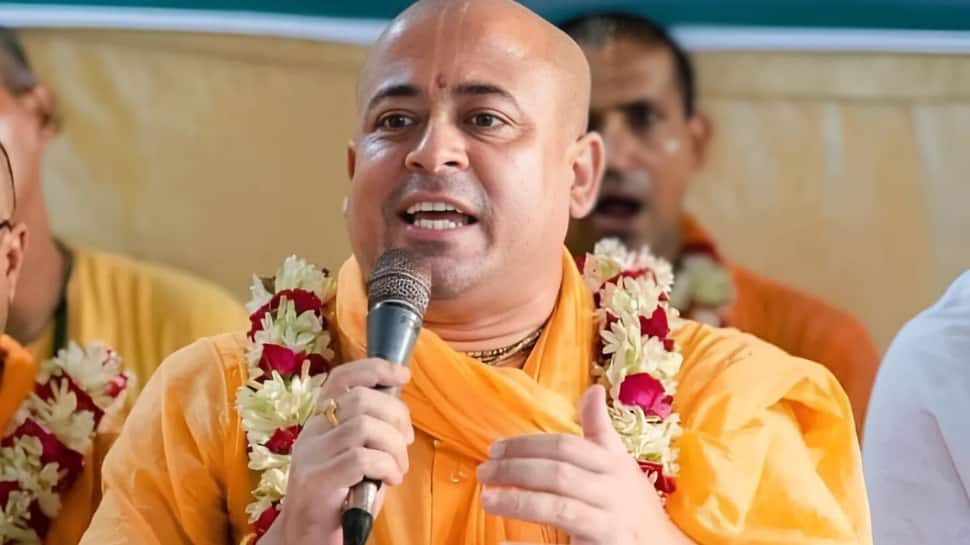 |
|
The arrest of Chinmoy Krishna Das, a prominent Hindu priest and leader within both the Bangladesh Sammilit Sanatan Jagran Jote and ISKCON, has ignited significant controversy in Bangladesh. His apprehension at Dhaka airport while en route to Chattogram underscores the gravity of the sedition charges leveled against him. The accusations stem from a protest rally where the Bangladeshi national flag was allegedly desecrated, an act considered deeply offensive and treasonous within the nation's legal framework. Das's role in the protest, his status as a religious leader, and the potential for this incident to further exacerbate existing religious tensions within Bangladesh all contribute to the widespread public interest in this case. The specific details of the protest, including the number of participants, the nature of their demands, and the precise events leading to the alleged flag desecration, remain crucial aspects that require thorough investigation and clarification.
The eight demands presented by Chinmoy Krishna Das and his supporters prior to the protest likely played a significant role in shaping the subsequent events and the charges brought against him. Understanding the context of these demands is crucial for comprehending the motivations behind the protest and the resulting conflict. While the precise wording of these demands remains a subject of ongoing discussion and potential dispute, it's essential to analyze their potential impact on the political and social landscape of Bangladesh. Did the demands directly or indirectly incite actions leading to the alleged flag desecration? Were they presented in a manner that could be construed as inflammatory or disrespectful of national symbols? These questions need careful consideration, and a thorough examination of the demands is necessary to achieve a fair and comprehensive understanding of the circumstances leading to Das's arrest.
The legal ramifications of Das's arrest and the sedition charges are far-reaching. The case highlights the complexities of balancing freedom of speech and expression with the preservation of national unity and respect for national symbols. Sedition laws, particularly in countries with a history of political instability or ethnic tensions, often become subjects of debate regarding their application and potential for misuse. The legal proceedings surrounding Das's case will likely involve a detailed examination of evidence, witness testimonies, and interpretations of the law. The outcome of the case will not only determine Das's fate but also set a precedent for future instances of similar protests and expressions of dissent. Furthermore, the international community's response to the case will likely impact Bangladesh's relations with other nations and highlight concerns about religious freedom and human rights.
Beyond the immediate legal aspects, the arrest of Chinmoy Krishna Das has broader implications for the socio-religious landscape of Bangladesh. The incident raises concerns about the potential for increased religious polarization and further marginalization of religious minorities. The case underscores the delicate balance required in maintaining religious harmony and social cohesion in a multi-religious society. It also prompts discussions on the role of religious leaders in shaping public discourse and the responsibility they bear in advocating for their communities while adhering to the laws of the land. The long-term consequences of this case could include heightened tensions between different religious groups, increased scrutiny of religious activities, and potential changes in government policies related to religious freedom and expression. The incident serves as a reminder of the complex challenges facing Bangladesh as it navigates its path towards a more inclusive and peaceful future.
Moving forward, a thorough and impartial investigation is crucial to ensure justice is served. All sides involved must present their evidence and perspectives, allowing the court to reach a just verdict based on facts and evidence, not speculation or bias. Transparency in the legal process will be critical in fostering public trust and confidence in the judicial system. Furthermore, open dialogue and communication between different religious communities and the government are necessary to address underlying concerns and prevent similar incidents from occurring in the future. Focus should shift towards fostering understanding and cooperation rather than allowing the incident to exacerbate existing tensions. The case presents an opportunity for Bangladesh to reaffirm its commitment to protecting religious freedoms while also upholding the integrity of its national symbols and laws.
